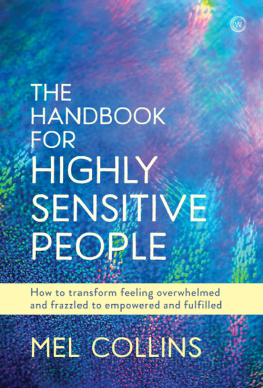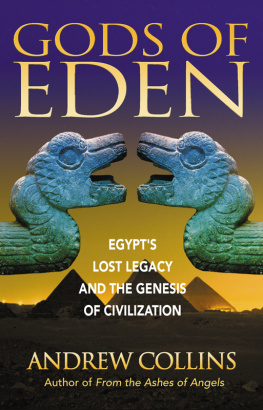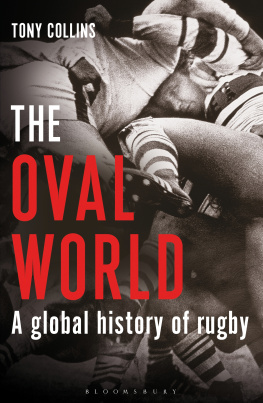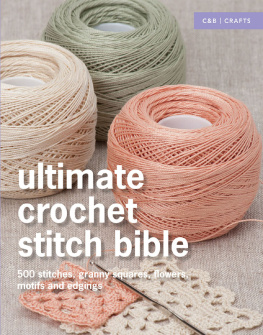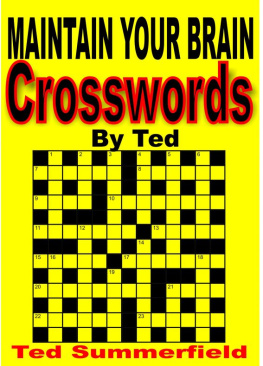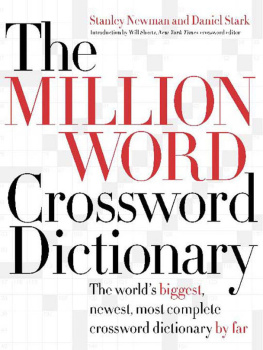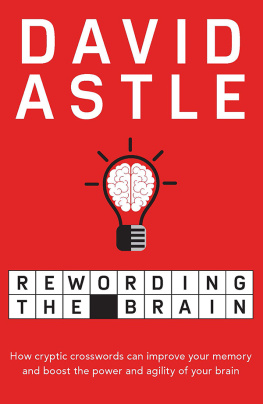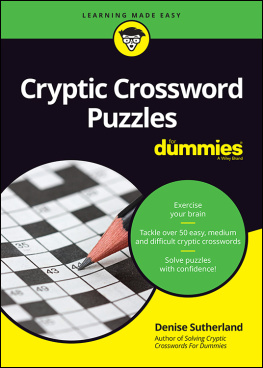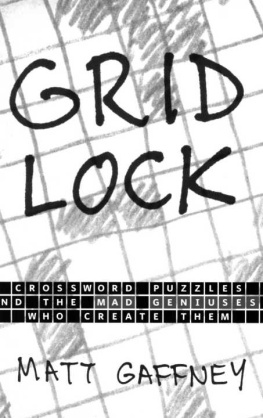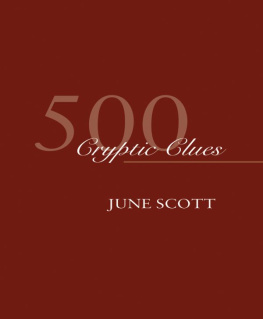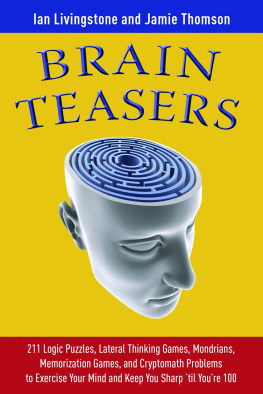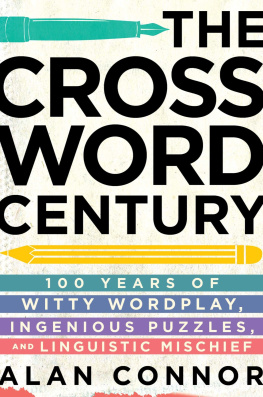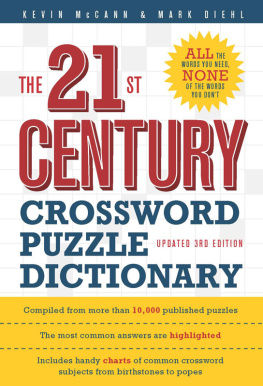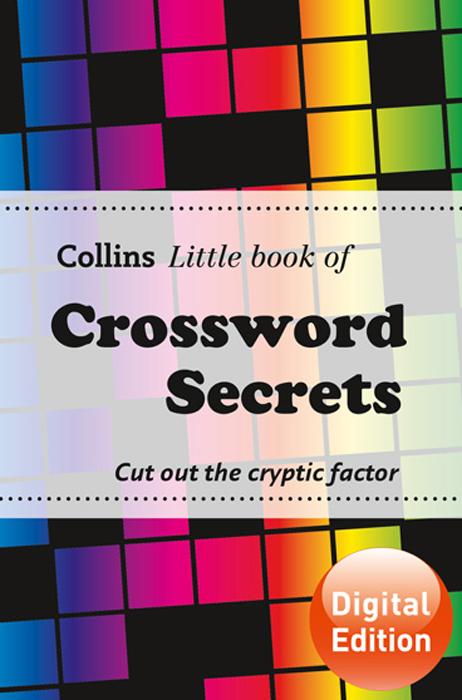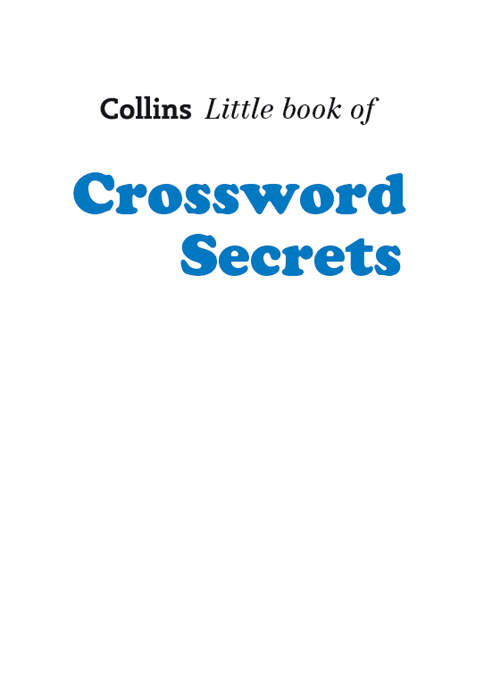Comprehensive dictionaries. Always Free Online. Join us at www.collinsdictionary.com.
Browse the full range of Collins Language books, apps and eBooks at www.collinslanguage.com.
Contributors Derrick Knight
Michael Kindred
Editor Freddy Chick
For the Publisher Lucy Cooper
Kerry Ferguson
Elaine Higgleton
Foreword
There have been other little books that have made far greater claims than this one. Equally, there have been many more that have sought only to spread the news
of what the butler saw. This
Little Book of Crossword Secrets lies somewhere in between.
It does not contain a vision of a new global order and yet, in a world that has never been more puzzling, it does promise to
answer some of the serious questions that keep you awake at night: Considering the end of days, confused in thy solo cage (11) asking What lies quivering at the bottom of the deep? (1,7,5) The secrets divulged within these pages, along with lists of the most useful crossword words, will let you tackle crosswords with confidence and hopefully brighten up your day.
A BRIEF HISTORY OF
CROSSWORD PUZZLES
The first crossword appeared in the New York Sunday newspaper
World in 1913. A journalist, Arthur Wynne, had been asked to create a new game for the fun section of the paper. Recalling acrostic puzzles from
his childhood, he devised a diamond-shaped grid with clues for the words. He called this a Word Cross.
It later became known as a cross-word. When the hyphen disappeared, the crossword had arrived.
The first British crossword was a quick crossword, which appeared in 1923. A setter with the awe-inspiring pseudonym of Torquemada (Edward Powys Mathers) championed the cryptic element of crosswords from the mid-1920s. The first Times crossword was published in 1930; by then most British newspapers were carrying a crossword puzzle. A crossword-solving craze had begun which endures to this day, boosting daily sales of national newspapers and giving a focus to tea breaks across the land. Cryptic and quick crosswords differ in that the surface meaning of a quick crossword clue corresponds to the solution, e.g. dress (4) has the solution SARI. dress (4) has the solution SARI.
The challenge of quick crosswords is that the solver doesnt know whether their solution is
the correct one: nimble could be LIGHT; dress could be TOGA. Solvers build up confidence in their solutions by using the checked letters of the unfolding grid. The beauty of cryptic crosswords, on the other hand,
is that solvers can immediately be certain that their solutions are correct. This is because there are always two ways to solve a cryptic clue. One aspect of a cryptic clue is the definition: a word or phrase which is a synonym or hypernym of the solution. The other aspect is the wordplay: a device such as an anagram, reversal, or charade which employs specific letters from the clue.
The clue as a whole is written so that the surface meaning distracts or actively misdirects the solver from the solution, e.g.
 | The flower of Glasgow? (5) |
The solver expects the solution to be a flower, not a flow-er, i.e. the river CLYDE. Many crossword editors abide by the rules of clueing fairness set down by the pioneering
Observer setter Ximenes (DS Macnutt). Ximenes wrote a treatise on
the art of crossword clue setting, and is succeeded at
The Observer in modern times by Azed (Jonathan Crowther) who has summed up his crossword philosophy as follows: A good cryptic clue contains three elements:
- a precise definition
- a fair subsidiary indication (wordplay)
- nothing else
The opposing school of crossword clueing (non-Ximenean) is practised by Araucaria (John Graham), whose unique jigsaw puzzles in
The Guardian have attracted a cult following for their ingenuity, wit, and occasional flouting of fair play. Another cryptic element of the crossword puzzle is the setters pseudonym.
Crossword setters have long concealed their identities with an allusive nom de plume. A good few refer to the Spanish Inquisition Torquemada, Ximenes, Azed (Deza backwards) but most make reference to the setters real name or interests (e.g. some of Don Manleys pseudonyms are types of don Quixote, Giovanni, Pasquale).
CRACKING
CRYPTIC
CLUES
Cryptic means hidden, secret or obscure. Setters of cryptic crosswords are devious creatures who love to mislead solvers as much as possible, using phrases and sentences which appear to be straightforward English, but are in fact anything but! They are spies whose cover must be blown and their true identity revealed. They are emissaries of an alien world where everything is back to front and nothing is what it at first appears.
Yet if this little book is to justify its name we must set about laying their secrets bare. So lets get cracking! All good investigations into alien life forms begin with an autopsy and so will we. Well start by pulling the clues apart and examining what they are made up of and the different forms and variations they can take.
The Bare Bones
At the most basic level there are only a few forms a cryptic clue can take. The first, and by far the most common is:
Definition Followed by the Wordplay
Example (with the definition in
bold):
 | Part of the bodyin the advert (4) |
Wordplay Followed by the Definition
Example (with the definition in
bold):
 | The advert includespart of the body (4) |
 | to a and b: HEAD |
The definition in both clues is part of the body. In example (a) in hints that the answer is hidden within the clue, and includes does the same in example (b).
Head, a part of the body, can be found within the words the advert. The other types of clue are rarer. They are:
Double or Multiple Definition
Two or more definitions are put together to be misleading. Each one taken separately is a definition of the answer.
 | Scandinavian vegetable (5) |
 | SWEDE |
A Swede is a Scandinavian and a swede is a type of vegetable.
Single Definition
The whole clue is a definition of the answer.
A question mark is sometimes used to emphasize the misleading or humorous nature of this type of clue. This example uses a very old joke.



